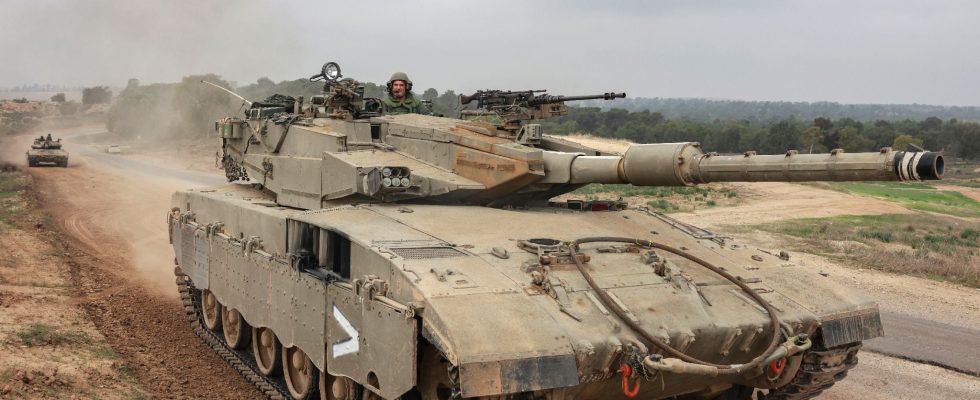How can we imagine the “day after”, when the war rages in Gazathat bombs are raining on the south of this narrow strip of land and that the hope of new releases of hostages fades with the end of the truce? There will, however, be a tomorrow, even if neither party is yet able to envisage it. Of course, it is difficult to imagine what will happen in the coming weeks, as the fog of war obscures the horizon. But the exercise is no less useful for planning ahead. Here are five scenarios that seem likely to us, in the more or less long term. They suggest the worst, but also explore hopeful perspectives. From international governance to the two-state solution, here is the range of possibilities. Fourth scenario of our special report: international governance over Gaza.
The idea came out of Antonio Guterres’ hat on November 20. According to the Secretary General of the United Nations, the international community will have to, when the guns fall silent, consider a “transition period” in Gaza, ensured by a “coalition of actors”, primarily American and Arab. A perspective which has not really won support, as it seems so perilous. Firstly, for security reasons. “Who is going to deploy soldiers in Gaza, at the risk of being perceived as both an occupying force and an accomplice of the Israeli army? notes Jean-Loup Samaan, researcher at the French Institute of International Relations. “I’m sure there will be a lot of candidates… Blue helmets? Difficult to imagine: they already have difficulty operating in Lebanon, even though the situation there is less complicated.” Moreover, Guterres, cautiously, ruled out any “UN protectorate”.
For his part, Jordanian Foreign Minister Ayman Safadi declared at the recent Security Forum in Manama (Bahrain) that “no Arab troops” would be deployed in Gaza after the war. SO ? “We could draw inspiration from the model of the Multinational Observer Force in Sinai, set up in 1982 after the Camp David treaty, which brings together 11 countries,” suggests Michael Harari, former Israeli ambassador.
Such a plan would of course assume that Hamas is defeated – but, also, that the objectives of such a mission are clearly defined. Will it be about maintaining public order? To control humanitarian aid? To manage hospitals? “Very good, but until when? No one, not even Israel, is able to say. Which government, in these conditions, would risk sending soldiers, if there are no deadlines? ” refutes Khalil Shikaki, director of the Palestinian Center for Policy and Survey Research in Ramallah, who believes, like many experts, that such an option will remain unrealistic as long as there is no political horizon in Gaza. “What is the purpose? The return of a two-state solution? Without this guarantee, such a project will never see the light of day”, resumes Jean-Loup Samaan, who adds another parameter, economic, to the equation: the colossal cost of reconstruction. “These two dimensions cannot be thought of one without the other.” Ultimately, there will be, at this stage, no international coalition until there is a peace agreement.
